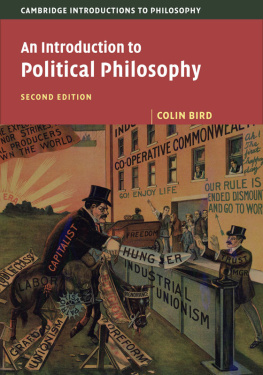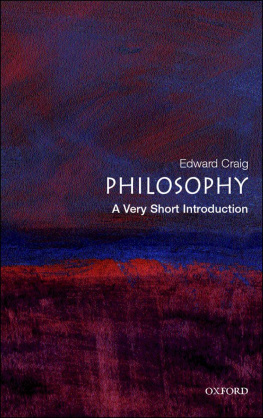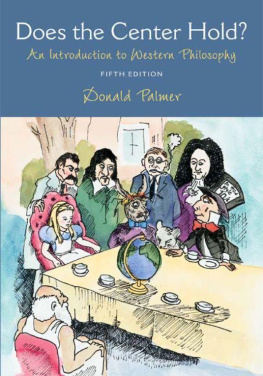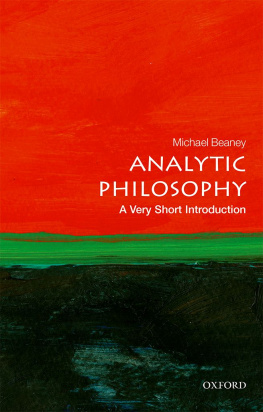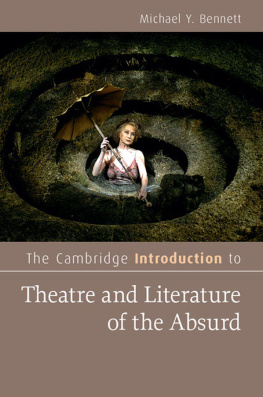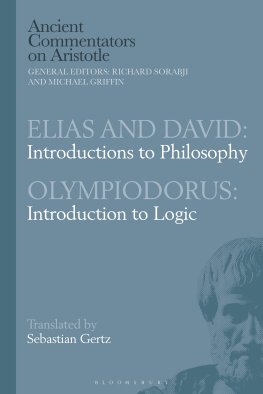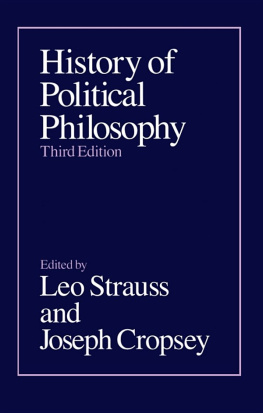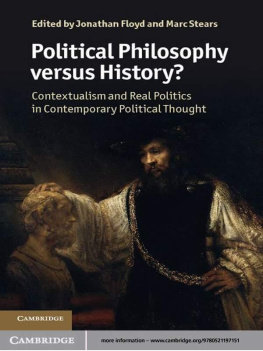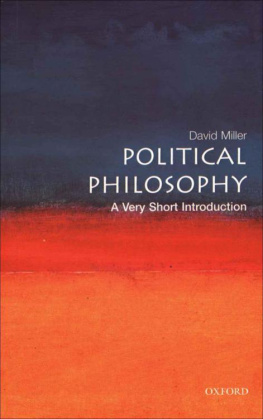Colin Bird - An Introduction to Political Philosophy (Cambridge Introductions to Philosophy)
Here you can read online Colin Bird - An Introduction to Political Philosophy (Cambridge Introductions to Philosophy) full text of the book (entire story) in english for free. Download pdf and epub, get meaning, cover and reviews about this ebook. year: 2019, publisher: Cambridge University Press, genre: Politics. Description of the work, (preface) as well as reviews are available. Best literature library LitArk.com created for fans of good reading and offers a wide selection of genres:
Romance novel
Science fiction
Adventure
Detective
Science
History
Home and family
Prose
Art
Politics
Computer
Non-fiction
Religion
Business
Children
Humor
Choose a favorite category and find really read worthwhile books. Enjoy immersion in the world of imagination, feel the emotions of the characters or learn something new for yourself, make an fascinating discovery.
- Book:An Introduction to Political Philosophy (Cambridge Introductions to Philosophy)
- Author:
- Publisher:Cambridge University Press
- Genre:
- Year:2019
- Rating:5 / 5
- Favourites:Add to favourites
- Your mark:
- 100
- 1
- 2
- 3
- 4
- 5
An Introduction to Political Philosophy (Cambridge Introductions to Philosophy): summary, description and annotation
We offer to read an annotation, description, summary or preface (depends on what the author of the book "An Introduction to Political Philosophy (Cambridge Introductions to Philosophy)" wrote himself). If you haven't found the necessary information about the book — write in the comments, we will try to find it.
Colin Bird: author's other books
Who wrote An Introduction to Political Philosophy (Cambridge Introductions to Philosophy)? Find out the surname, the name of the author of the book and a list of all author's works by series.
An Introduction to Political Philosophy (Cambridge Introductions to Philosophy) — read online for free the complete book (whole text) full work
Below is the text of the book, divided by pages. System saving the place of the last page read, allows you to conveniently read the book "An Introduction to Political Philosophy (Cambridge Introductions to Philosophy)" online for free, without having to search again every time where you left off. Put a bookmark, and you can go to the page where you finished reading at any time.
Font size:
Interval:
Bookmark:
An Introduction to Political Philosophy
Now revised and updated and containing several entirely new chapters, this book provides a comprehensive introduction to political philosophy. It discusses historical and contemporary figures and covers a vast range of topics and debates, including immigration, war, national and global economics, the ethical and political implications of climate change, and the persistence of racial oppression and injustice. It also presents accessible, nontechnical discussions of perfectionism, utilitarianism, theories of the social contract, and the Marxian tradition of social criticism. Real-life examples introduce students to ways of using philosophical reflection and debates, and open up new perspectives on politics and political issues. Throughout, this book challenges readers to think critically about political arguments and institutions that they might otherwise take for granted. It will be a vital and provocative resource for any student of philosophy or political science.
Colin Bird is Associate Professor of Politics at the University of Virginia. He is the author of The Myth of Liberal Individualism (Cambridge, 1999), and his work has also appeared in numerous major academic journals including Ethics , Philosophy and Public Affairs , the American Political Science Review , Political Theory , Polity , and the European Journal of Philosophy .
An Introduction to Political Philosophy
Second Edition
Colin Bird
University of Virginia


University Printing House, Cambridge CB2 8BS, United Kingdom
One Liberty Plaza, 20th Floor, New York, NY 10006, USA
477 Williamstown Road, Port Melbourne, VIC 3207, Australia
314321, 3rd Floor, Plot 3, Splendor Forum, Jasola District Centre, New Delhi 110025, India
79 Anson Road, #06-04/06, Singapore 079906
Cambridge University Press is part of the University of Cambridge.
It furthers the Universitys mission by disseminating knowledge in the pursuit of education, learning, and research at the highest international levels of excellence.
www.cambridge.org
Information on this title: www.cambridge.org/9781108423434
DOI: 10.1017/9781108526067
Colin Bird 2006, 2019
This publication is in copyright. Subject to statutory exception and to the provisions of relevant collective licensing agreements, no reproduction of any part may take place without the written permission of Cambridge University Press.
First published 2006
Reprinted 2010
Second edition 2019
Printed and bound in Great Britain by Clays Ltd, Elcograf S.p.A.
A catalogue record for this publication is available from the British Library.
Library of Congress Cataloging-in-Publication Data
Names: Bird, Colin, author.
Title: An introduction to political philosophy / Colin Bird.
Description: Second edition. | Cambridge; New York, NY: Cambridge University Press, [2019] | Includes bibliographical references and index.
Identifiers: LCCN 2018048988 | ISBN 9781108423434 (hardback) | ISBN 9781108437554 (pbk.)
Subjects: LCSH: Political science Philosophy.
Classification: LCC JA71.B528 2019 | DDC 320.01dc23
LC record available at https://lccn.loc.gov/2018048988
ISBN 978-1-108-42343-4 Hardback
ISBN 978-1-108-43755-4 Paperback
Cambridge University Press has no responsibility for the persistence or accuracy of URLs for external or third-party internet websites referred to in this publication and does not guarantee that any content on such websites is, or will remain, accurate or appropriate.
This book has two aims: first, to stimulate critical reflection on political institutions and practices, and on the various arguments that might be offered for and against them; and second, to give readers an appreciation of the most provocative historical and contemporary contributions to political philosophy. The book could be used as a free-standing text in an introductory course, or in conjunction with assigned readings from some of the major texts discussed (Plato, Hobbes, Rawls, and others). Although I have aimed for wide coverage, the immense scope of the field necessitates some selection, and this book does not pretend to be comprehensive or exhaustive.
The topics addressed in this second edition differ from those included in the first. The extensive discussions of the problem of political obligation and of the value of toleration that formed ). I have introduced these topics because they are of increasing relevance both in public discussion and within academic political philosophy.
Although they cover much the same ground as their counterparts in the old edition, the remaining chapters have also been revised, in some cases extensively. , on freedom, has been restructured and now includes a discussion of sweatshops as a test case.
As with the first edition, I have not attempted to provide extensive or comprehensive references to the large and growing academic literatures on these topics. Such websites as the Stanford Encyclopedia of Philosophy give students today unprecedentedly easy access to bibliographic databases on any number of topics. These online resources effectively supplant the textbook as a source of bibliographic information and, because they are regularly updated as new literature emerges, they perform that function rather more effectively than a book published at a particular moment ever could. Accordingly, I have written the book, not to reproduce academic resources already available online, but to orient readers to the central philosophical problems raised by various political questions, hopefully in a fresh, efficient, and provocative way. It will have succeeded if it provides them with reliable, and critically aware, frameworks to guide them as they venture into the dauntingly vast academic literatures on these subjects, and as they reflect for themselves on the adequacy of the political practices and structures that surround them.
For related reasons, I have tried as far as possible to steer clear of excessive technical jargon, and of those contemporary debates that seem to me to have become boringly scholastic (e.g. equality of resources vs. equality of welfare; individualism vs. communitarianism, and so on). Although I have not avoided all references to schools of thought, I have also deliberately chosen not to organize the book around ideological worldviews like liberalism, libertarianism, socialism, feminism, or conservatism. The most interesting arguments too often flow between these various positions. Moreover, I have found that emphasizing them encourages the false view that these ideological fixtures are natural kinds when in fact they reflect highly parochial political divisions. Focusing on them also implies that political philosophers are servants of ideologies, helping to make them more plausible, systematic, and rhetorically effective. We should discourage this perception. Political philosophers need not be loyal to particular ideological positions or movements and define their activities in these terms. Of course, there are many who today write in this vein a liberal theory of this, a feminist theory of that, a libertarian defense of such and so but I think this is clearly the wrong way to make philosophy politically relevant. I hope this book helps readers to see a better way.
Font size:
Interval:
Bookmark:
Similar books «An Introduction to Political Philosophy (Cambridge Introductions to Philosophy)»
Look at similar books to An Introduction to Political Philosophy (Cambridge Introductions to Philosophy). We have selected literature similar in name and meaning in the hope of providing readers with more options to find new, interesting, not yet read works.
Discussion, reviews of the book An Introduction to Political Philosophy (Cambridge Introductions to Philosophy) and just readers' own opinions. Leave your comments, write what you think about the work, its meaning or the main characters. Specify what exactly you liked and what you didn't like, and why you think so.

